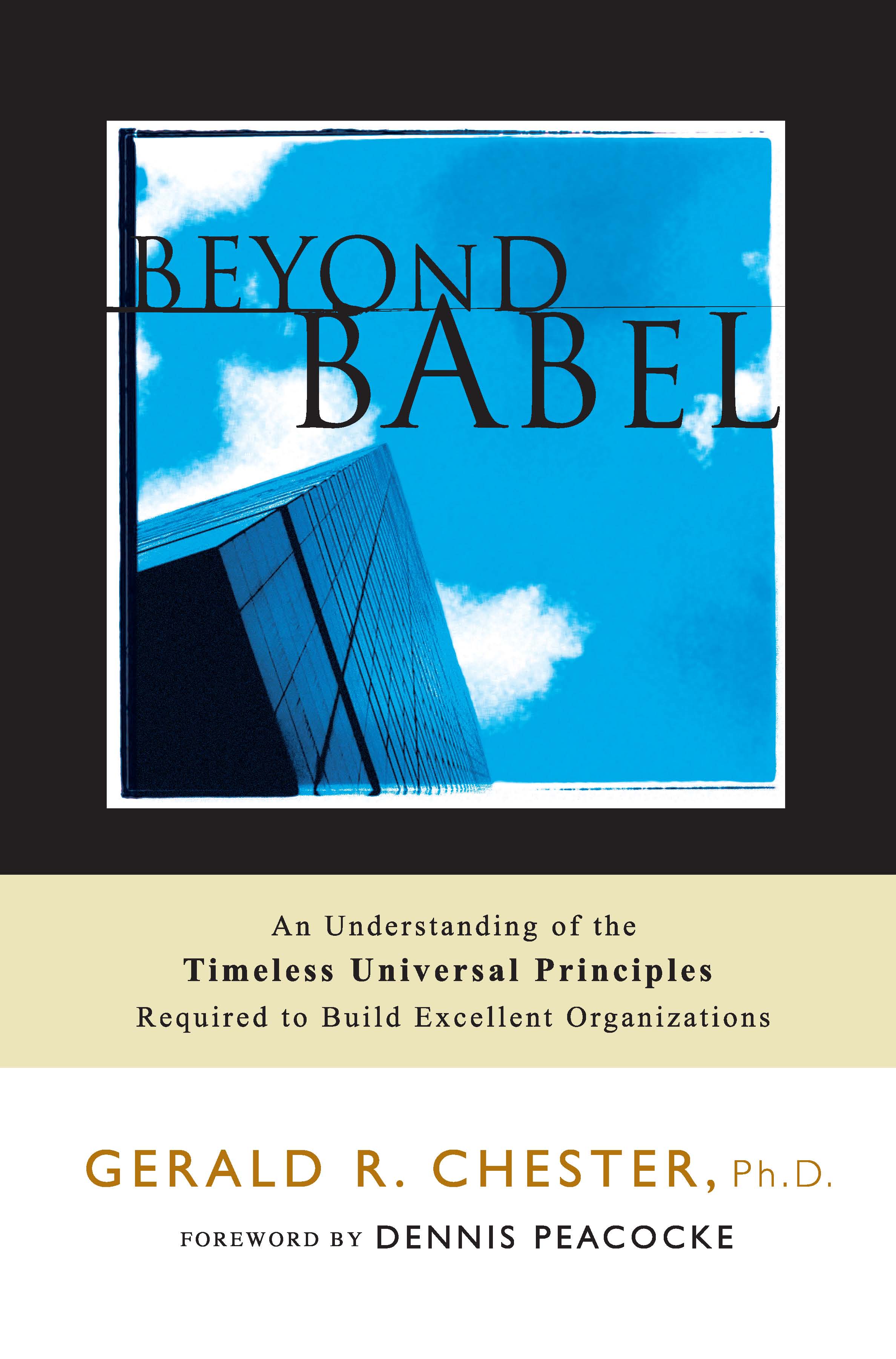 |
|||||
|
|||||
Gleanings |
|||||
Betrayal in the Workplace by Gerald R. Chester, Ph.D. |
|||||
In the December 2014 Gleanings, I shared empirical data on three types of workers—engaged (satisfied), disengaged (ambivalent), and actively disengaged (highly unsatisfied). Those who are engaged are satisfied with their work and proactively support the mission of their organizations. The disengaged are ambivalent and therefore don’t really care whether their organizations succeed or not; they simply want their paychecks. And the actively disengaged are highly unsatisfied and consequently proactively oppose their organizations—meaning they intentionally work against the organizations that pay them. This month I want to focus on the latter category—the disengaged worker. Clearly, the disengaged worker is a danger to any organization. These workers surreptitiously find ways to sabotage organizations, usually for their own agendas. Consider, for example, Judas Iscariot, one of Jesus’ twelve disciples. Jesus was the leader of an organization. It was not a highly structured organization, but nevertheless it was an organization if you concede that the definition of an organization is two or more people who have joined together to accomplish a mission. Jesus’ mission was to solve the problem of sin in the universe, which causes, among other things, dysfunction, conflict, inefficiency, deception, poverty, disease, and death. Interestingly, many people have sought to eradicate these maladies, but Jesus provided the only efficacious solution. The organization Jesus formed was multi-generational consisting primarily of twelve men whom he personally discipled. These men would then carry on the work after Jesus departed. Of these men, apparently Peter, James, and John were the most productive—at least they were the most prominent. The least productive was Judas Iscariot. Judas Iscariot betrayed Jesus and committed suicide before the organization’s work dramatically expanded. Why did he do this? My thesis is that Judas tried to do something that was impossible—he tried to worship both God and money. In the Sermon on the Mount, Jesus said the following: “No one can serve two masters; for either he will hate the one and love the other, or else he will be loyal to the one and despise the other. You cannot serve God and mammon." —Matthew 6:24 NKJV In the last sentence of this text, the Greek word translated cannot means “unable to or lacking the power.” Also, the Greek word translated serve means to obey, to submit, and to serve (as an expression of worship). Jesus is noting that human beings, in a fallen state, do not have the power to serve or worship both God and money. In other words, it is impossible to worship God and money. Those who pretend to worship both are deceived. As the treasurer of Jesus’ organization, Judas handled the financial affairs and used his position of trust to embezzle. Then Judas monetized his insider information and betrayed Jesus’ location to the authorities so they could arrest him when there was no crowd around. For this information, Judas received compensation from the authorities. But after Judas led the authorities to Jesus at night and saw Jesus’ condemned to die, he was filled with remorse. He went to the authorities and confessed his sin to them but found no sympathy. So he threw the money at them that he had been paid and committed suicide. Judas’ appeared to try to worship God and money, which, as noted above, is impossible. He was deceived and had pursued his own interests based on this deception. Judas is an example of an actively disengaged worker. He sabotaged the organization to fulfill his own agenda. Many disengaged workers are angry at their companies but Judas was not angry; rather, he was simply trying to do what God said was impossible. He was trying to worship God and money, which is bad theology. At the root of any actively disengaged worker, there is always bad theology at work in the heart of the worker. Judas's attempt to worship God and money is one example. It is bad theology to think that one has the potency, in and of themselves, to do what God has said is impossible. What then can we learn from Judas about the traits of disengaged workers? Here are some thoughts. Even the best organizations can have disengaged workers. If Jesus was the best organizational leader ever, and arguably he was, and he had a disengaged worker, every organization should expect to have disengaged workers. Disengaged workers can appear to be engaged workers who think and act for the good of the organization but in reality they pursue their own agenda. For example, Judas asserted that it was an unwise use of resources for Mary to anoint Jesus’ feet with costly oil. He said that the oil should have been sold and the proceeds given to the poor. While his objection sounded benevolent, his agenda was not benevolent but one of personal gain. He was an embezzler. Disengaged workers are difficult to detect. Apparently, Judas had been undetected, both as an embezzler and betrayer, by anyone in the organization except Jesus, who was clearly able to see reality far better than his disciples who tended to live in unreality. For example, his disciples focused on issues such as who was the greatest among them and when was Jesus going to be crowned king. Likewise, disengaged workers can remain undetected. Only people with keen discernment, like Jesus, can detect disengaged workers. Disengaged workers are destructive but may not know the implications of their actions. Judas not only embezzled money but he also betrayed the confidence of his leader. This betrayal led to Jesus’ being arrested, convicted, and executed by the political and religious leaders. Judas eventually recognized what he had done and became so remorseful that, according to Matthew’s account, he return the betrayal money and committed suicide. Judas had not realized the consequences of his betrayal; he was so blinded by his narcissistic agenda expressed by an attempt to worship God and money that he could not see the consequences of his actions. So it is with disengaged workers: their personal agendas blind them so that they cannot see reality well or the implications of their choices. Disengaged workers are a blight on every organization. Their narcissistic agendas are distracting, deceptive, and destructive. Well-meaning organizational leaders can be unaware of the presence and impact of disengaged workers on their organizations and many times can be perplexed by situations that arise. They frequently do not understand that the origin of these situations is bad theology at work in the hearts of disengaged workers within their organizations. Given the challenge of detecting and dealing with disengaged workers, what should an organizational leader do? Here are some tips.
If you are going to embrace this battle, you must open your mind to the reality of the existence and impact of disengaged workers. If Jesus’ organization had Judas, your organization(s) will, most likely, have the equivalent of Judas or worse. Therefore organizational leaders must recognize the reality of disengaged workers. Leaders must face this hard reality and ask the question "who are the disengaged workers in my organization and how should I respond to them?" Herein is a major challenge for every leader and manager who wants to build truly excellent organizations in accordance with the will and ways of God. If you are an organizational leader, will you respond to the challenge? |
|||||
|
|||||
|
|||||




